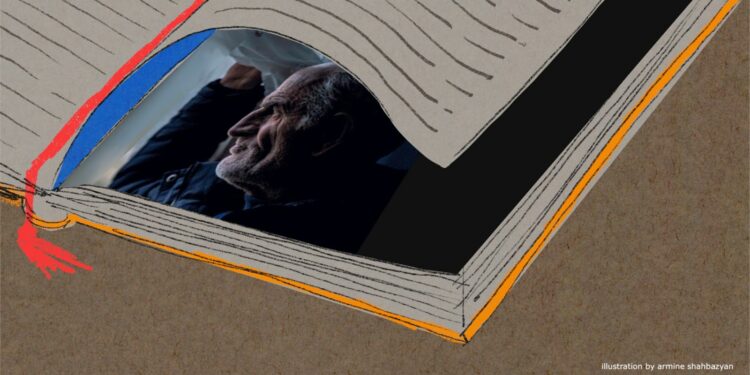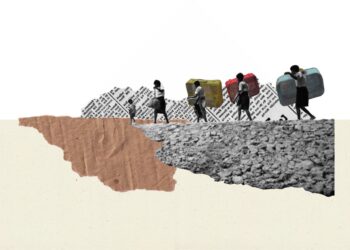Spotlight Artsakh
We’re Home, And Yet We’re Not
In September, two families-in-law from Artsakh found refuge in the village of Yeghvard, Armenia, joining over 100,000 displaced Armenians facing similar challenges. Marut Vanyan, a journalist from Artsakh, provides insight into their experiences.
From Vayk’s Registration Center in Search of Aida
Irina Merdinyan traveled into the heart of a tragedy to help the forcibly displaced Armenians of Artsakh. In the midst of that experience, she was confronted with pain, confusion, anger and fleeting moments of joy.
The Storks of Ranchpar
Several hundred forcibly displaced people from Artsakh have found refuge in the Armenian village of Ranchpar. As they struggle to make sense of their loss and create a new life, they hang on to the hope that, like the storks of the village who return each year, they too will one day return to their native Artsakh.
Health, Women and War
With women and girls making up over half of the displaced people from Artsakh, what kinds of health and safety risks are they facing, and who is there to help?
So That in the End, Good Triumphs Over Evil…
Specialists from the Ministry of Internal Affairs are working to alleviate the anxiety of the forcibly displaced children from Artsakh by offering psychological first aid. Their journey is captured in this photo story by Ani Gevorgyan.
The Love on the Other Side of the Border: The Volunteers
As the ethnically cleansed Armenians of Artsakh streamed into Goris, they were met with hundreds of volunteers, among them diasporan Armenians, many of whom now feel a deeper connection and a stronger sense of purpose.
Armenians of Artsakh: Aching for Home
As the forcibly displaced Armenians of Artsakh struggle to comprehend the magnitude of their loss, memories of the homes and lives they were forced to leave behind suffocate them. Theirs is a story of being ripped from their roots, of pain and dispossession.
In Search of a New Home: Zorak
More than 500 forcibly displaced Armenians from Artsakh are now in the village of Zorak in Armenia’s Ararat region, where several families are living together in one house, some even in their trucks. Photojournalist Ani Gevorgyan tells their story.
An Uncertain Future, Uncertain Status
Over 100,000 forcibly displaced Armenians of Artsakh are now in Armenia facing the crippling challenge of starting over after losing everything. They also face an uncertain future with regard to their status.
Education Second, Life First
Mellisa, a six-year-old from the village of Harav in besieged Artsakh, should have started first grade this year. However, she will not be attending school, and neither will her four older siblings.












